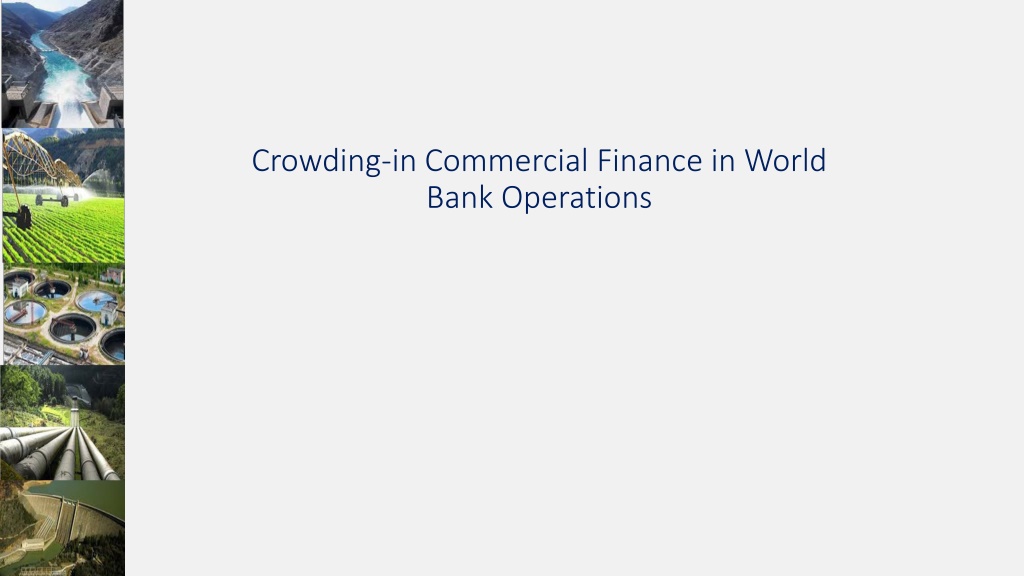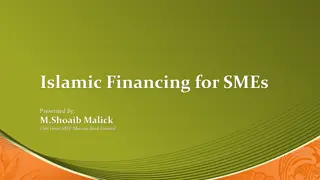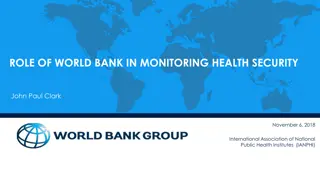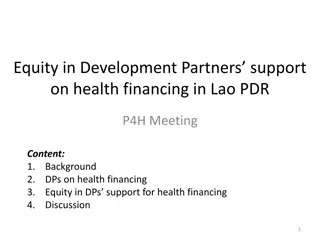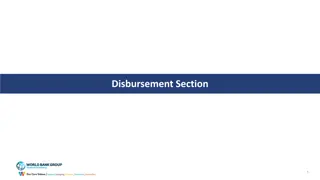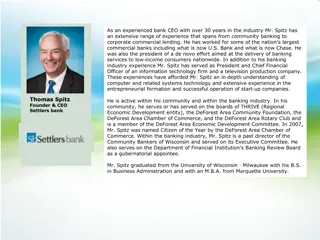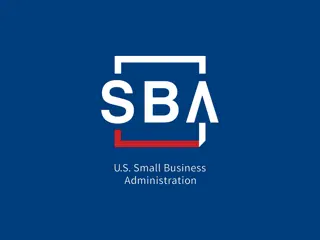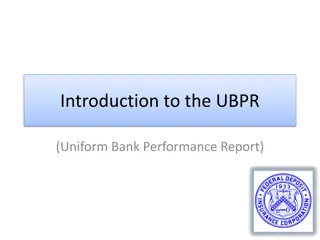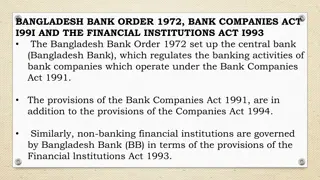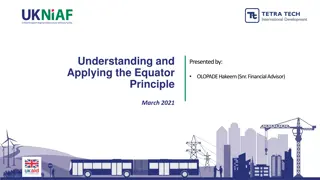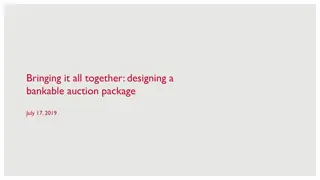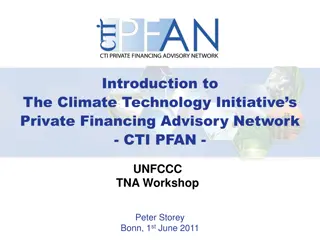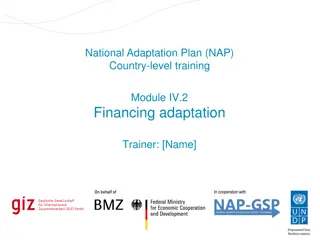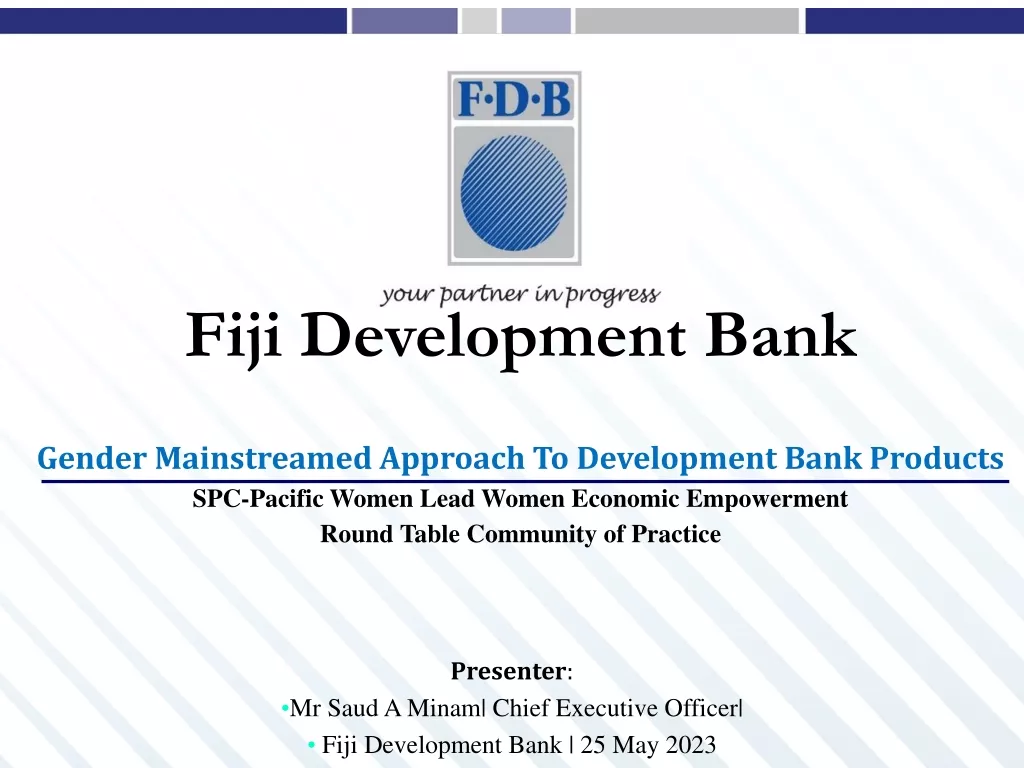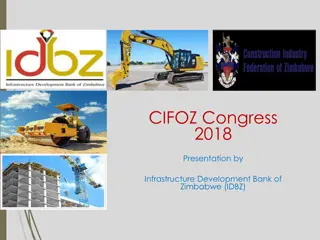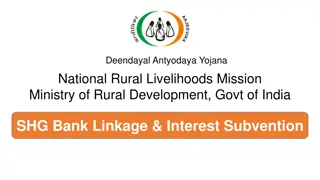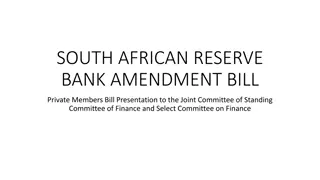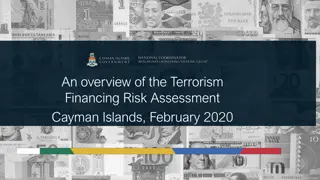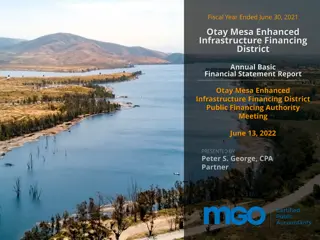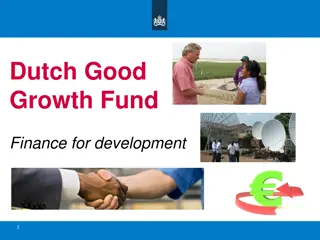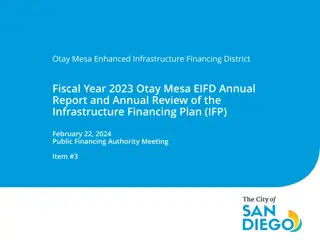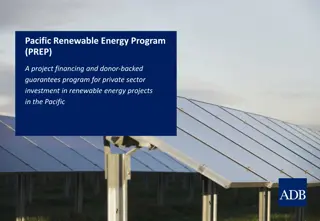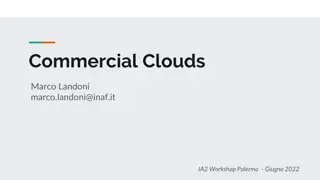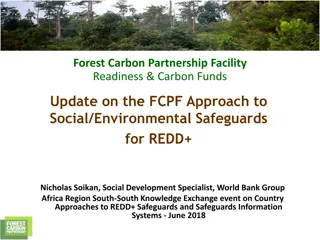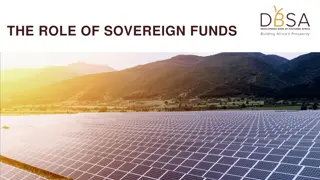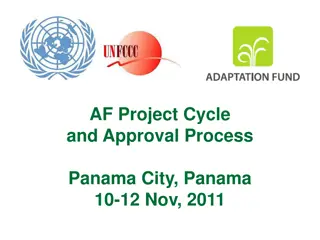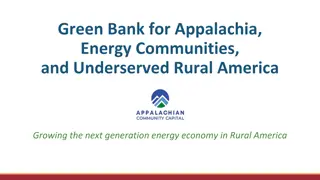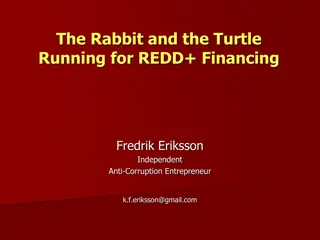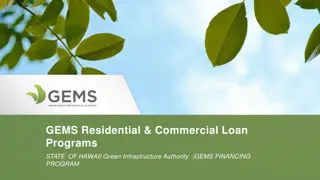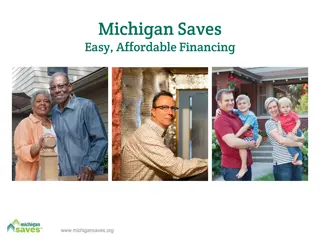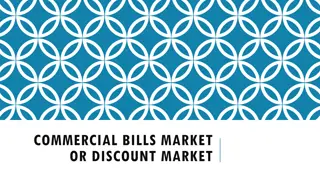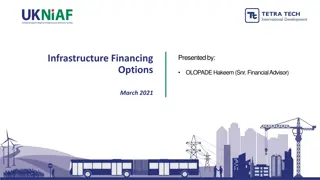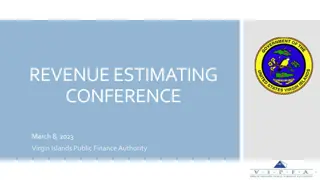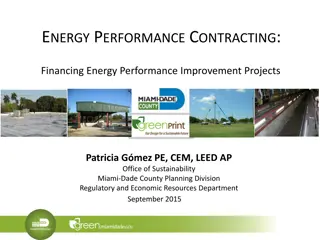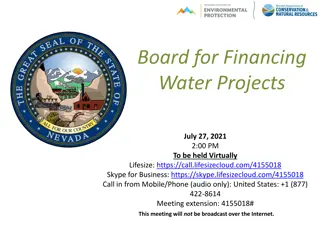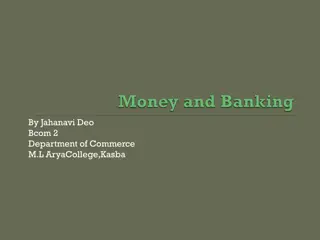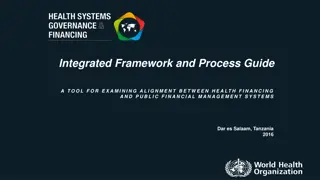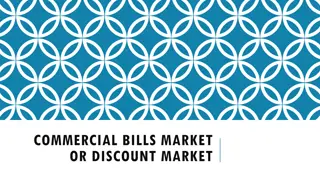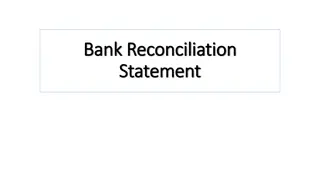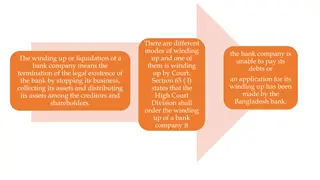Enhancing Commercial Financing Strategies in World Bank Projects
Explore how diversifying external and internal financing sources, leveraging commercial bank loans, and bridging funding gaps are crucial in the strategic continuum of World Bank operations, especially in the water sector. It's essential to involve commercial lenders, improve financial instruments, and assess the capacity of commercial banks to achieve sustainable financing goals.
Download Presentation

Please find below an Image/Link to download the presentation.
The content on the website is provided AS IS for your information and personal use only. It may not be sold, licensed, or shared on other websites without obtaining consent from the author. Download presentation by click this link. If you encounter any issues during the download, it is possible that the publisher has removed the file from their server.
E N D
Presentation Transcript
Crowding-in Commercial Finance in World Bank Operations
Diversifying Sources of External and Internal Financing Breaking the Over-Reliance on Public Funds Why It s Important Improving Information Gaps of the Domestic Lending Sector. Improving the Governance Framework
Steps for Sourcing Commercial Bank Loans for WSS Entities Create Funding & Oversight Programs to Incentivize LGUs Source: Author s elaboration
View the process in a strategic continuum. First stage should focus on getting some level of commercial finance participation. In the short-term focus on tapping the low hanging fruit which means: (i) identifying realistic sources of commercial bank loans that can be mobilized quickly for the operation; as well as (ii) identifying those utilities which offer quick paying investments that can be supported through blending arrangements or enhancements. Set Realistic Expectations In later stages with the same utilities, the goal should be to increase the participation of the commercial lenders and commensurately decrease the role of public sources of finance.
Someone has to pay Public Finance Alone Cannot Close the Funding Gap Overwhelming Conditions that Must be Reconciled WSS Providers are financially weak Many financial instruments to leverage PPPs and commercial finance do not work in Water
Determine the capacity of commercial banks including: (i) lending terms; (ii) experience if any in financing infrastructure and particularly water; (iii) main constraints and reservations and level of interest in participating in the sector. Assess Existing Opportunities in Domestic Finance Market Identify the existence of any special purpose facility and whether water projects would be eligible. Such facilities could include wholesale programs, pooling facilities, OBA programs, ODA supported funds, etc. One of the quickest ways to achieve the financing objectives is to link IBRD or IDA operations to Global Partnership on Output-Based Aid (GPOBA) programs also executed by domestic commercial banks Identify the existence of other programs or financing sources.
Loan Security Instruments to secure cash flows for private lender (i) collection accounts; (ii) transfer intercepts; (iii) tax pledges. Determine the Need for Loan Security and Subordinate Loan Agreements Subordinate Loan Agreements to give senior status to commercial lender.
Which WSS Providers to Target
Conduct Tariff Adequacy Analysis
Performance improvement programs tend to be much less costly than developing an entirely new water source and in many cases, can offer quick returns and short payback on invested capital. For these reasons, they are safer investments for commercial lenders. Focus on Performance Improvement Programs Moreover, such programs as opposed to programs requiring longer term payback periods are: (i) much easier for lenders to comprehend, and (ii) easier to assess the related risks and consider positively. For example, combining NRW reduction with a connection program in existing core areas leads to immediate benefits which can accommodate loans of a shorter maturity.
Through blending financing structures; and Develop a Financing Strategy for Leveraging Public Financing By providing risk instruments and/or other enhancements
Improve sustainability levels of water entities, and by crowding-in commercial finance the development of the financial sector is accelerated. Reduce the overall cost of finance to close the financial viability gap of marginally creditworthy entities and lengthen maturities. Develop Blended Finance Strategy Create financially viable and bankable lending arrangements and bridge creditworthiness status. Improve information gaps among commercial lenders by establishing financial relationships with WSPs. Bring additional stakeholders into the governance process. If donors and IFIs are involved in the financing structure as honest brokers, they can provide and extra element of comfort to commercial lenders to reduce their perception of risk..
Identify Need for Third Party Guarantees Partial Credit Guarantee Partial Risk Guarantee
Match Candidates to Sources of Finance and Assess Capacity of Local Public Finance Institutions as Conduits OBA and microfinance programs that are either being contemplated or already under implementation offer an excellent opportunity for linking programs, and could speed up the process in identifying private partners. Also look for other conduits through DFIs and MDFs. Domestic commercial lenders will likely be the more realistic choice for carrying out a joint blended operation. This is particularly true if these lenders have already had some experience in the sector, even as purely depository agencies.
Possible Sources of Commercial Finance
